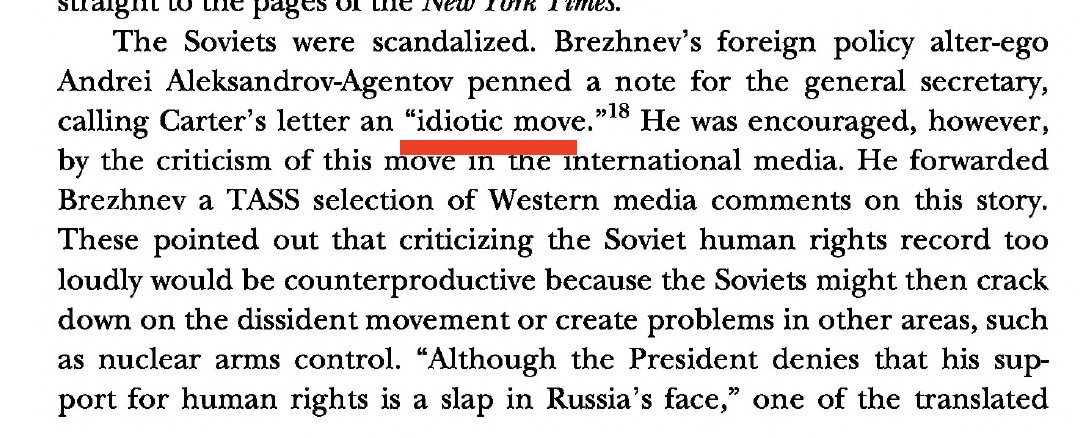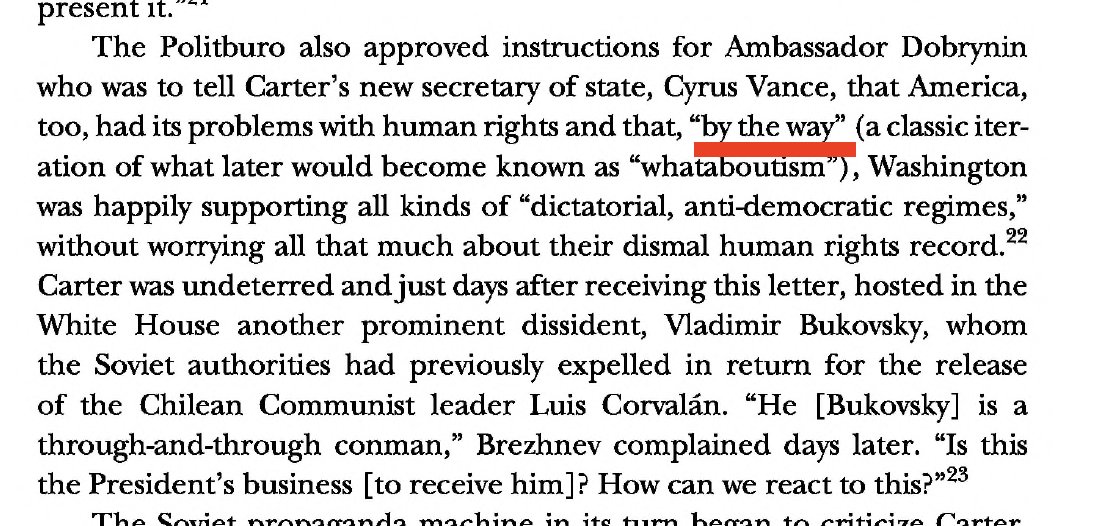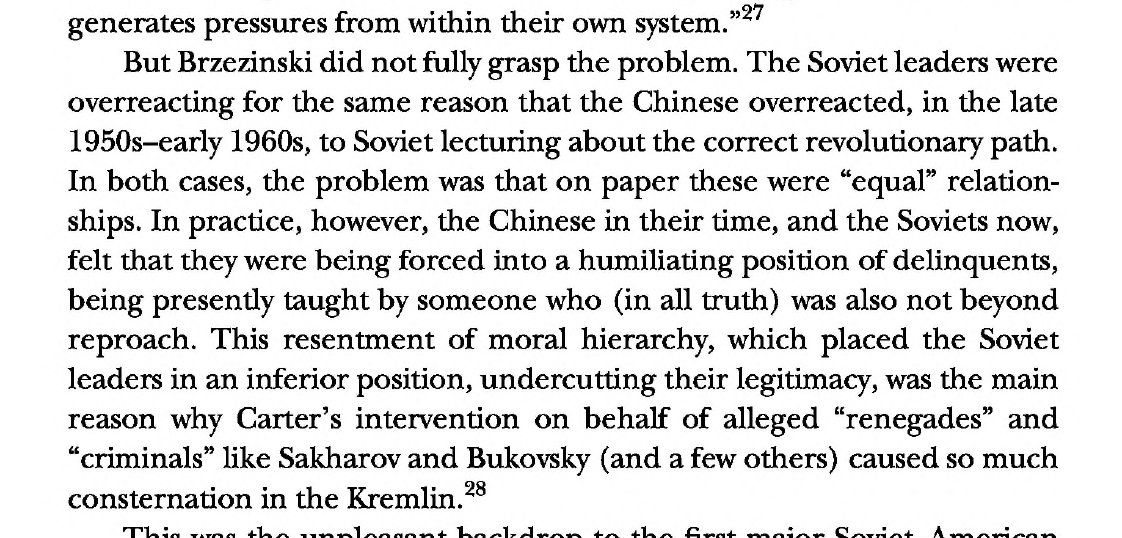Carter is gone. RIP. In my book, To Run the World, I talk at length of his impact on US-Soviet relations. Broadly speaking, he annoyed everyone in Moscow.

Actually, at first the Soviets thought he might be a welcome change after the rocky Ford presidency. 

But Brezhnev et al were scandalized by Carter's correspondence with Soviet dissidents like Andrei Sakharov. 

The main problem was that they felt that by probing the human rights issue, the Carter administration was adopting a "teacher's" position vis-a-vis the USSR, effectively looking down on the Soviets. And of course, the Americans were themselves not without sin. 

These are of course just short excerpts, taken out of context. Read the whole thing here: .amazon.com/Run-World-Krem…
• • •
Missing some Tweet in this thread? You can try to
force a refresh









